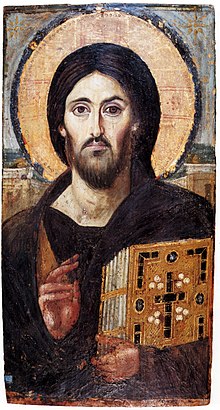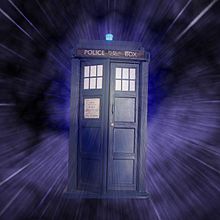Idiot

Idiot, dolt, and dullard are terms used for a mentally deficient person, or someone who acts in a self-defeating or significantly counterproductive way. The similarly used terms moron, imbecile, and cretin have all gained specialized meanings in modern times. An idiot is said to be idiotic, and to suffer from idiocy. A dunce is an idiot who is specifically incapable of learning. An idiot differs from a fool, who is considered unwise, or an ignoramus, who is simply uneducated (an ignorant person), neither of which refers to someone with low intelligence. Such words are sometimes used as mildly derisive terms of endearment as well as harshly critical insults. The word idiot is derived from the Greek ἰδιώτης, idiōtēs ("person lacking professional skill", "a private citizen", "individual"), from ἴδιος, idios ("private", "one's own"). In Latin the word idiot ("ordinary person, layman") preceded the Late Latin meaning "uneducated or ignorant person." Its modern meaning and form dates back to Middle English around the year 1300, from the Old French idiote ("uneducated or ignorant person"). In Athenian democracy an idiot was someone who was characterized by self-centeredness and concerned almost exclusively with private — as opposed to public — affairs.
Quotes
[edit]
- Alphabetized by author




- If we've learned anything from the best-selling Diary of a Wimpy Kid children's book series, it's that those who see themselves surrounded by idiots are usually idiots themselves.
- What is Grand is necessarily obscure to Weak men. That which can be made Explicit to the idiot is not worth my care.
- William Blake, in a letter to Revd Dr. Trusler, (23 August 1799)
- Degrade first the arts if you'd mankind degrade,
Hire idiots to paint with cold light and hot shade.- William Blake, Annotations to Sir Joshua Reynolds's Discourses, title page (c. 1798–1809)
- To Generalize is to be an Idiot. To Particularize is the Alone Distinction of Merit — General Knowledges are those Knowledges that Idiots possess.
- William Blake, Annotations to Sir Joshua Reynolds's Discourses, pp. xvii–xcviii (c. 1798–1809)
- Never confuse an idiot.
- Jack Cady, The Night We Buried Road Dog (originally published in The Magazine of Fantasy & Science Fiction, January 1993; reprinted in The Year's Best Science Fiction, volume 11, edited by Gardner Dozois).
- Jesse Pinkman: So you're chasing around a fly and in your world, I'm the idiot?
- Sam Catlin, Moira Walley-Beckett Fly (Breaking Bad)
- It is paltry philosophy if in the old-fashioned way one lays down rules and principles in total disregard of moral values. As soon as these appear one regards them as exceptions, which gives them a certain scientific status, and thus makes them into rules. Or again one may appeal to genius, which is above all rules; which amounts to admitting that rules are not only made for idiots, but are idiotic in themselves.
- Carl von Clausewitz, On War (1832), Bk. 3, Ch 3: "Moral Factors", as translated by Michael Howard and Peter Paret
- All right! I confess, I confess. I confess to your being a bigger idiot than I thought.
- Robert Holmes, in lines written for the fourth incarnation of The Doctor, in response to his being tortured in the Doctor Who episode The Deadly Assassin (30 October 1976)
- Galileo was no idiot. Only an idiot could believe that science requires martyrdom — that may be necessary in religion, but in time a scientific result will establish itself.
- David Hilbert, in defense of Galileo's recantation of his discoveries before a tribunal of the Inquisition, as quoted in Mathematical Circles Squared : A Third Collection of Mathematical Stories and Anecdotes (1972) by Howard Whitley Eves, p. 125
- Qui autem dixerit fratri suo, Raca: reus erit concilio.
- But whoever will have called his brother, 'Idiot,', shall be liable to the council.
- Jesus, New Testament, Matthew 5:22, Vulgate.
- If you call someone an idiot, you are in danger of being brought before the court.
- But whoever will have called his brother, 'Idiot,', shall be liable to the council.
- Idiots are not responsible for what they do. The real guilt falls on rational people who sit on their hands while the morons run wild. You can opt out if you want to. Play it safe. But if you do, don’t complain when the roof comes down.
- Jack McDevitt, Odyssey (2006), Ch. 6, p. 48
- I am not … a "good man"! … And I'm not a bad man. … I am not a "hero" — and I'm definitely not a President — and no — I'm not an officer! … You know what I am? … I AM … an IDIOT! … with a box — and a screwdriver — passing through, helping out, learning.
- Steven Moffat, in lines for the Twelfth incarnation of the Doctor in Doctor Who : Death in Heaven (8 November 2014)
- Anyone who has declared someone else to be an idiot, a bad apple, is annoyed when it turns out in the end that he isn't.
- Friedrich Nietzsche, as quoted in The Seattle Massacre : The Ripper Case Series (2011) by J. J. Knight, p. vii
- Out, out, brief candle!
Life's but a walking shadow, a poor player
That struts and frets his hour upon the stage,
And then is heard no more. It is a tale
Told by an idiot, full of sound and fury,
Signifying nothing.- William Shakespeare in Macbeth (c.1605), Act V, Sc. V; Macbeth after the death of his wife
- You know there’s no advantage to be gained by murdering idiots—it doesn’t teach the idiot anything and it might give onlookers the idea that you take them seriously.
- Charles Stross, Halting State (2007), Chapter 6
- The idiot heard the sounds, but they had no meaning for him. He lived inside somewhere, apart, and the little link between word and significance hung broken.
- Theodore Sturgeon, More Than Human (1953), Ch. 1 : The Fabulous Idiot, p. 1
- Even if we accept, as the basic tenet of true democracy, that one moron is equal to one genius, is it necessary to go a further step and hold that two morons are better than one genius?
- Leó Szilárd, The Voice of the Dolphins: And Other Stories (1961)
- Variant translation: I'm all in favor of the democratic principle that one idiot is as good as one genius, but I draw the line when someone takes the next step and concludes that two idiots are better than one genius.
- As quoted in "Some Szilardisms on War, Fame, Peace", LIFE magazine, Vol. 51, no. 9 (1 September 1961), p. 79
- In Paris they just simply opened their eyes and stared when we spoke to them in French! We never did succeed in making those idiots understand their own language.
- Mark Twain, The Innocents Abroad (1869), Ch. 61
- Reader, suppose you were an idiot. And suppose you were a member of Congress. But I repeat myself.
- Mark Twain, in a draft manuscript (c.1881), quoted in Mark Twain: A Biography (1912) by Albert Bigelow Paine, p. 724
- I'd always, you see, even in my early teens, had these problems — problems of suddenly waking up in the middle of the night and having this horrifying vision that life is completely meaningless. You know — just thinking about something like the depths of space, and realizing it's got to come to an end somewhere, but apparently it doesn't, and then suddenly getting this terrible feeling that maybe life is a total delusion. G. K. Chesterton once said that in his teens he saw hell, and I really think I did too. I went through extreme depressions, glooms. There was one occasion on which I decided actually to commit suicide. I'd got into this state — I was working as a lab assistant at the school, and what would happen was that I'd make tremendous efforts to push myself up to a level of optimism. I'd do it in the evenings by reading poetry, thinking, writing in my journals, then I'd go back to the school the next day and blaaahhh, right down to the bottom again. This was the feeling of The Mind Parasites — there's something that waits until you've got lots of energy and just sucks you dry like a vampire. This sudden feeling that God was making fun of me made me feel one day, "For God's sake, let's not have any more of this nonsense. I'm damned if I'll be played about with like this. Let me kill myself." And immediately I felt this, I felt a curious sense of inner strength. So I went off to night school quite determined that what I was going to do was to take down the bottle of potassium cyanide from the reagent shelves and drink it. I knew that cyanide burns a hole in the bottom of the stomach and kills you within seconds. Well, I went into the classroom quite determined. There was a group gathered around the professor at the desk. I went over to the reagent shelves, I took down the bottle of potassium cyanide, I uncorked it, and as I started raising this to my lips I suddenly had an extremely clear vision of myself in a few seconds' time with an agonizing pain in the pit of my stomach, and at the same time I suddenly turned into two people. I don't mean that literally, but I mean that there was I, and there beside me was this silly, bloody little idiot called Colin Wilson who was in a state of self-pity and about to kill himself, and I didn't give a damn whether the fool killed himself or not. The trouble was, if he killed himself he'd kill me too. And quite suddenly a terrific sense of overwhelming happiness came over me. I corked up the bottle, put it on the shelf, and for the next few days was in total control of my emotions and everything else. I realized suddenly that you can achieve these states of control, provided that you put yourself in a crisis situation. And that's why throughout The Outsider I keep saying the outsider's salvation lies in extremes.
- Colin Wilson Interviewed on Thinking Allowed, with Dr. Jeffrey Mishlove


